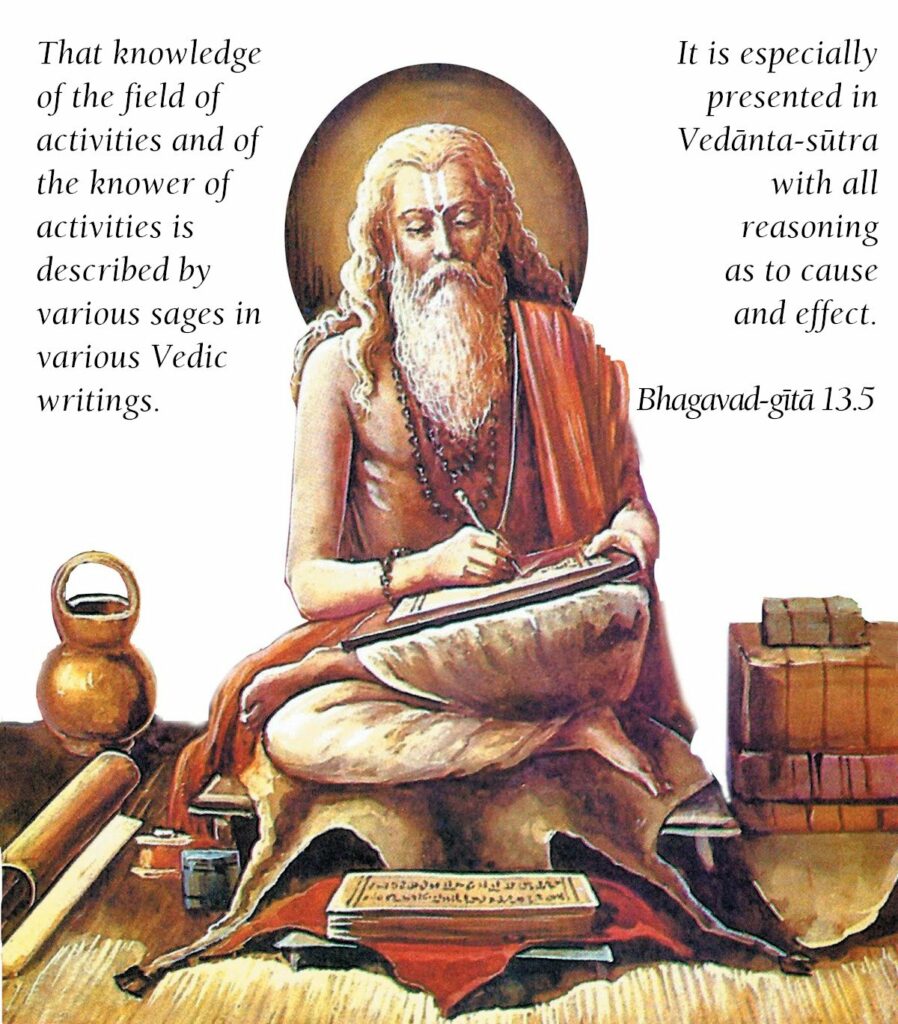ऋषिभिर्बहुधा गीतं छन्दोभिर्विविधै: पृथक् |
ब्रह्मसूत्रपदैश्चैव हेतुमद्भिर्विनिश्चितै: || 5 ||
ṛiṣhibhir bahudhā gītaṁ chhandobhir vividhaiḥ pṛithak
brahma-sūtra-padaiśh chaiva hetumadbhir viniśhchitaiḥ
ṛiṣhibhiḥ—by great sages; bahudhā—in manifold ways; gītam—sung; chhandobhiḥ—in Vedic hymns; vividhaiḥ—various; pṛithak—various; brahma-sūtra—the Brahma Sūtra; padaiḥ—by the hymns; cha—and; eva—especially; hetu-madbhiḥ—with logic; viniśhchitaiḥ—conclusive evidence
Translation:
All this has been sung by sages in many and different ways, in various distinctive hymns, and also in well reasoned and convincing passages indicative of Brahman.
Commentary:
Rishibhirbahudhagitam: Rishi means a sage who has conquered the senses, and who has attained Brahmajnana. What they say is the very essence of all things and they have established this ‘jnana’ in various ways. It is clear that this knowledge has come down to us from great Rishis.
Hetumadbhirvinischitaih: The Brahmasutras of Vyasa are not fictitious creations of fancy and imagination. They are scientific and logical statements proved and declared by subtle intellectual and analytical reasoning. The modern man who claims rational thinking as his special privilege will find enough argumentative power and conclusive reasoning in every part of the Brahmasutras. That is why it is said ‘vinischitaih‘-conclusively proved. Not only is this knowledge obtained by reasoning but directly apprehended by them through personal experience. It is the highest truth and there is nothing beyond it.
Bhagavad Gita: Chapter 13 🔻 (35 Verses)
